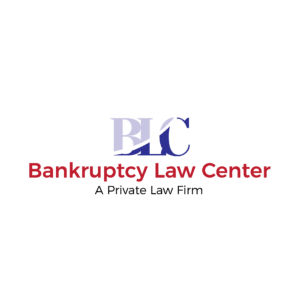When financial hardships make it impossible to even pay your bills by the end of each month, many people choose to remain in denial and try their best to get out of the situation. They are threatened by the debt collectors, and the whole situation can be a horrific experience. The debt collectors may be lurking outside of your home, or may verbally abuse you. While the verbal abuse may be a part of debt collection, it remains illegal to abuse any debtor verbally. With everything going on so quickly, it is best to address your financial issues because the more you avoid confronting them, the worse the situation will get.
Filing for Chapter 7 bankruptcy can be the best course of action for you. Chapter 7 bankruptcy, also known as “Liquidation Bankruptcy,” can help you avoid the majority of your unsecured financial debt permanently. If you are drowning the sea of debt, you can always find a Chapter 7 bankruptcy lawyer in Orlando to help you file the petition. Once you are qualified for Chapter 7 bankruptcy, you can get relieved from your financial obligations, allowing you to pay your medical bills, house bills, mortgage or rent, buy groceries, and other essential expenses.
Two Types of Bankruptcy: Chapter 7 & 13
While Chapter 13 bankruptcy may save your homes from foreclosure by a structured repayment plan, the Chapter 7 bankruptcy, on the other hand, can help you remove your debts permanently. When filed for Chapter 13 bankruptcy, you must repay all of your debts through a three to a five-year payment plan.
Some debtors who file for Chapter 13 might not be able to repay all of their debts by the end of the given time. Chapter 7 is a great way to ensure that all your assets, or most of them, are safe. Even the time frame for Chapter 7 is shorter than Chapter 13 –within three to six months. If the filer has a qualifying income for Chapter 13 repayment plan, they will not be able to file for Chapter 7 bankruptcy.
Eligibility Criteria For Chapter 7 Bankruptcy in Orlando Florida
To qualify for Chapter 7 bankruptcy, the first requirement is that filer must be an individual instead of a partnership or business corporation. Regardless of the amount of debt on you, it all can be relieved once you are proven to be eligible for bankruptcy.
The Means Test
The Chapter 7 bankruptcy “means test” will assess whether your income is low enough to make you eligible for bankruptcy. This helps them to prevent debtors with a high-income file for Chapter 7. This way, Chapter 7 is safely granted to the people who need it.
Monthly expenses within the allowed range would be deducted from your current monthly income. The current monthly income is calculated using the average of the income of six months prior to filing the petition. The difference between your current income and allowed expenses is known as “disposable income.” If your disposable income comes higher than the eligibility, you will not be able to file for Chapter 7 bankruptcy. You must search whether your disposable income is within the range of Chapter 7 in your state of residence.
If your median income is higher than the range, you must calculate whether you would be left with enough disposable amount to repay your debt. If the answer to the previous question is “yes,” the process might get more complicated. If your median income is lower than the bar, then, in Florida, you can file for Chapter 7 bankruptcy without any further tests required.
Other Issues That Can Prevent Your Chapter 7 Claim
- No debtor should file the Chapter 7 bankruptcy petition without receiving credit counseling (from an approved agency) within the 180 days of filing. If they have developed any debt management plan, it should be presented in the court.
- If it found that during the preceding 180 days, if the debtor willfully failed to appear in the court or comply with any of the court orders, therefore had a prior Chapter 7 bankruptcy petition dismissed. The person will not be eligible for the Chapter 7 bankruptcy petition.
- If the debtor has voluntarily dismissed a prior Chapter 7 bankruptcy petition, after their creditors attempted to recover lien-based properties, the Chapter 7 claim will not be qualified.
How Does Chapter 7 Bankruptcy in Orlando Florida Works?
Once you have found yourself eligible for Chapter 7, a petition will be filed in a bankruptcy court serving your residence area. The debtor should file a complete schedule of their assets, liabilities, current income, expenses, financial affairs statements, contracts, and leases. The case trustee must also be provided with the tax return for the recent tax year and possibly additional tax returns as well. A statement regarding your net monthly income and the record of federal or state-qualified student loans must also be filed.
Chapter 7 Fees
After filing for Chapter 7, if the debtor expects an increase in their income, the statement of that must also be provided to the court with all the other documents. The filing fees in Florida must be submitted with the documents. $245 as the case filing fee, $75 as the miscellaneous administration fee, and $15 trustee surcharge fee. If not able to pay the fees on time, you can have your Chapter 7 petition dismissed. If the debtors have their income in the 150 percent of the poverty level and are not able to their fees (even in installments) can have their fees waived off by the court.
In The End
Filing for Chapter 7 bankruptcy might cause you to lose your credit score for a little while, and will remain on your credit report for almost ten years. However, the advantages and improvements in quality of life cannot be ignored. You can always find a professional bankruptcy lawyer in Orlando to help you with the process of getting your petition approved.
